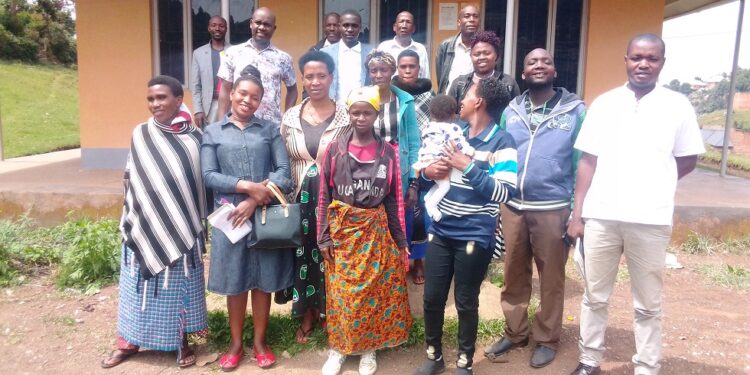Rubanda District has witnessed an increase in the number of individuals living with HIV, with the prevalence rate rising to 2 percent from 1.8 percent. This concerning information was revealed by Messiah Asasira, the HIV focal person for Rubanda District, during a sensitization meeting organized by Kabale District orphans and vulnerable children living with HIV/AIDS (KADOLHA) at Muko Sub County headquarters.
Asasira emphasized the importance of following the advice provided by healthcare workers and adhering to prescribed treatment regimens. He acknowledged that certain areas, including Bubare, Hamurwa, Mpungu, Rubanda Town Council, and Bufundi, are considered HIV hotspots within the district. By encouraging individuals living with HIV to prioritize their health and well-being, he aimed to ensure that they can lead longer and healthier lives.
“First and foremost, please know that you are not alone. There is a global community of individuals who understand and empathize with the challenges you face. We want to remind you that you are strong, resilient, and deserving of love and support. Living with HIV may present its own unique set of challenges, but it does not define who you are as a person. You are more than your diagnosis. It is important to remember that with proper medical care, treatment, and support, people with HIV can lead fulfilling lives,” Asasira said.
“Taking care of your physical and emotional well-being is crucial. Adhering to your prescribed treatment plan, including taking medication consistently, attending medical appointments, and practicing self-care, can help you maintain good health and manage the virus effectively. It is essential to challenge the stigma and discrimination that may surround HIV. Educating others about the realities of living with the virus can help dispel misconceptions and promote understanding and empathy. Sharing your story, if you are comfortable doing so, can be a powerful way to inspire others and foster positive change.”
In his address, Amos Tugumisirize, the Executive Director of KADOLHA, emphasized the benefits of disclosing one’s HIV status. He explained that by openly sharing their status, individuals can gain improved access to medical care and support services.
“One of the primary advantages of disclosure is improved access to medical care and support services. By openly sharing their HIV status, individuals are more likely to seek appropriate medical treatment, adhere to prescribed antiretroviral therapy (ART), and regularly engage with healthcare providers. This proactive approach to healthcare management can lead to better viral suppression, stronger immune systems, and improved overall health. Additionally, disclosure allows healthcare professionals to provide tailored support, guidance, and education specific to an individual’s HIV status, helping them navigate any challenges they may face. Equally important, disclosing HIV status fosters a supportive network of friends, family, and peers who can offer emotional support and understanding,” Amos noted.
However, Tugumisirize emphasized the critical role that healthcare workers and community leaders play in maintaining confidentiality. He called on them to uphold the trust placed in them by people living with HIV and to ensure that their secrets are kept secure.
“Confidentiality plays a pivotal role in HIV treatment and care. By safeguarding the privacy of individuals living with HIV, we foster an environment of trust, where they feel comfortable seeking and continuing treatment. The current situation, where individuals have to travel long distances to access ARVs, poses several challenges to maintaining confidentiality,” he noted.
Vincent Rwabusende, Chairperson of people living with HIV in Rubanda District, echoed Tugumisirize’s sentiment and emphasized the importance of inclusive education. Rwabusende drew attention to signposts within schools that convey messages of fear and death related to AIDS/HIV. He expressed concern about the impact of such signage on students living with HIV, noting that it perpetuates harmful stereotypes and contributes to feelings of isolation and distress.
Rwabusende urged school authorities to remove or edit these signposts, advocating for a more sensitive and accurate approach.
“Removing or editing the language on these signposts is not about ignoring or denying the existence of HIV, but rather about adopting a more sensitive and accurate approach. Signage can be revised to convey messages that promote inclusivity, support, and accurate information about HIV prevention, treatment, and care. This way, schools can contribute to creating an environment that fosters acceptance, understanding, and empathy,” Rwabusende said.
Do you have a story in your community or an opinion to share with us: Email us at editorial@watchdoguganda.com










